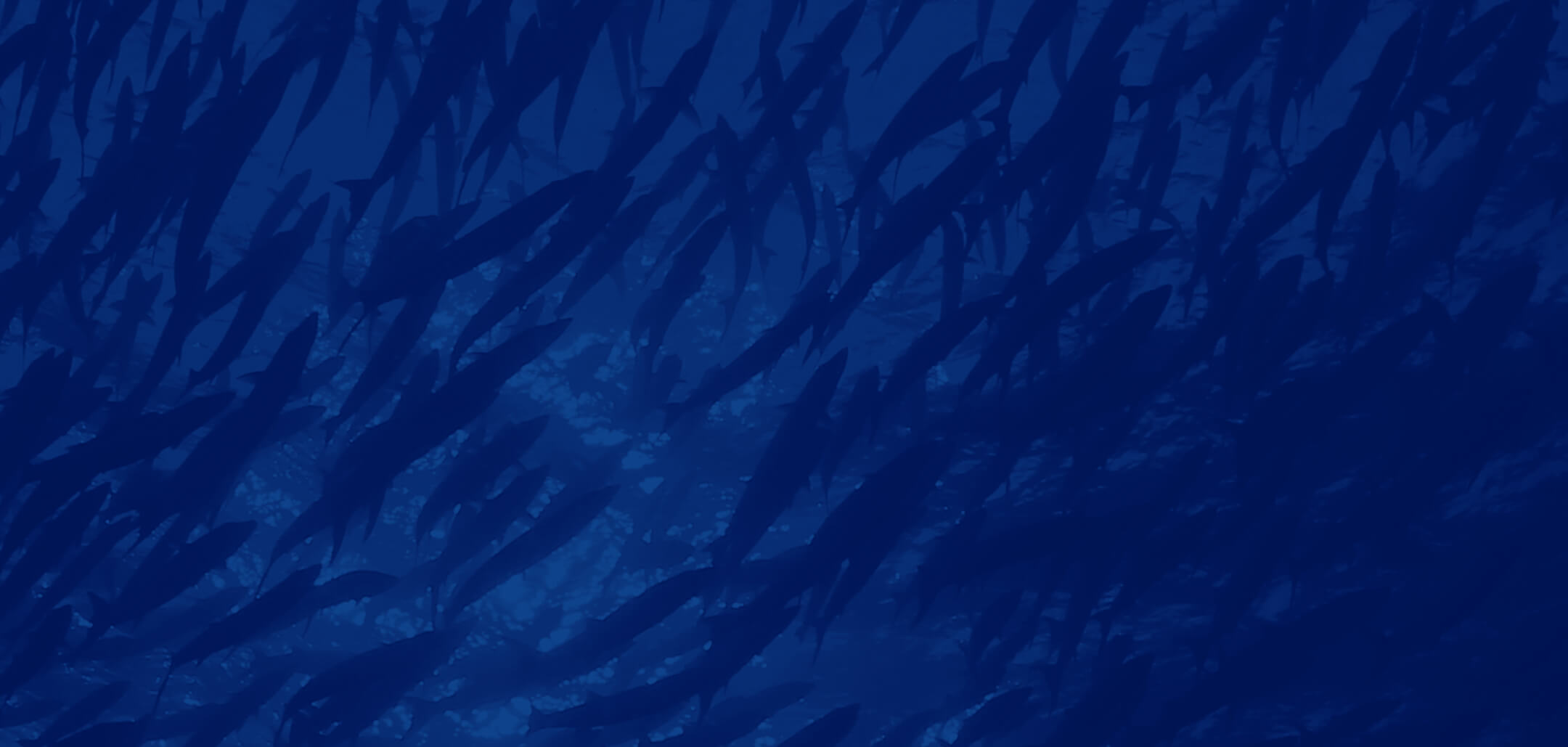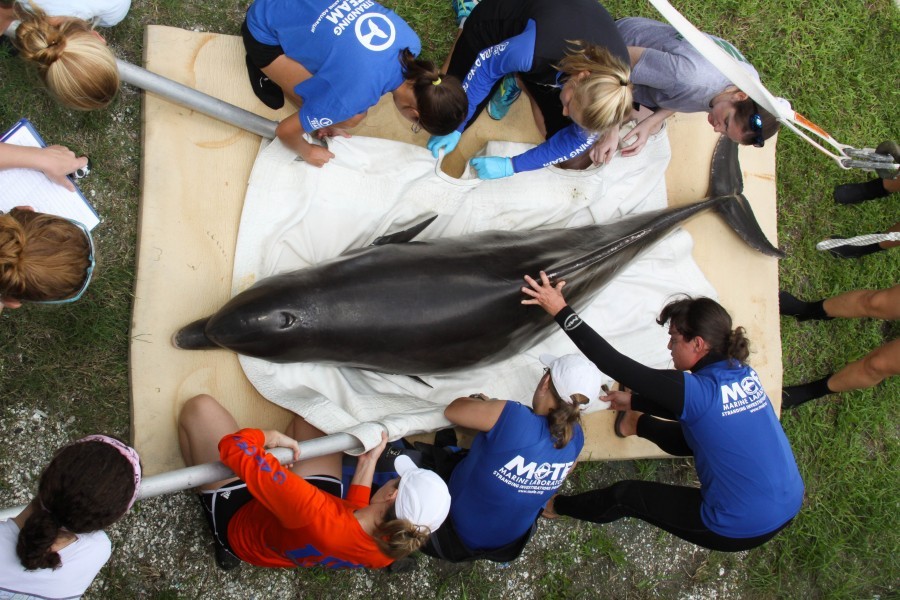This month, NOAA Fisheries announced that they have awarded nearly $3 million in grants to organizations that rescue, rehabilitate, recover and support conservation of marine mammals such as dolphins and whales.
Through the 2016 cycle of the John H. Prescott Marine Mammal Rescue Assistance Grant Program, NOAA awarded 32 grants to nonprofit organizations, aquariums, universities, and coastal state, local and tribal governments that are members of the National Marine Mammal Stranding Network.
Mote Marine Laboratory in Sarasota, Florida, received $96,929 to help support and enhance its critical efforts as a Marine Mammal Stranding Network partner.
“Prescott grants are extremely important to us as a nonprofit organization rescuing and rehabilitating marine mammals,” said Gretchen Lovewell, manager of Mote’s Stranding Investigations Program. “These grants are the only direct source of federal funds for members of the National Marine Mammal Stranding Network. As part of this network, we are first responders providing emergency aid to dolphins and whales that might otherwise have no helping hand. When animals can’t be saved or strand dead, we continue to learn from them through extensive post-mortem exams.”
Mote’s Stranding Investigations Program responds 24/7 to reports of sick, injured and dead marine mammals and sea turtles in Sarasota and Manatee counties in Florida. Mote’s Dolphin & Whale Hospital and Sea Turtle Rehabilitation Hospital provide excellent care to these protected species, always with the goal of returning them to the wild.
Together, these programs have responded to more than 1,400 sea turtle strandings and more than 680 dolphin and whale strandings of 25 species. Since 2010, Mote has received an average of 495 calls per year and responded to and recovered a total of 620 stranded sea turtles, 67 dolphins or whales, and three mass-strandings of dolphins, while also assisting in the response to 195 manatees.
- While Prescott Grants provide partial support for marine mammal efforts, the demands for Mote’s sea turtle and marine mammal response, rehabilitation and research cannot be met without philanthropic giving. It costs $165, on average, to investigate each report of animals in trouble, not counting the valuable in-kind help of trained interns and volunteers. Rescue costs can exceed $5,000 per day, and the food, medication and medical testing for one dolphin or whale can total $600-1,000 per day. Satellite-linked tags to monitor animals after release cost as much as $3,600 each. To help meet these demands, anyone can donate to Mote at: www.mote.org/support
When animals are recovered dead, Mote conducts thorough necropsies to better understand the challenges they faced. This work has produced 20 years of archived frozen and preserved tissues, more than 30 years of dolphin and whale bone specimens in Mote’s Ruth DeLynn Cetacean Osteological Collection, and resulting scientific presentations and publications to inform conservation.
These efforts are amplified through teamwork with the Sarasota Dolphin Research Program, a Chicago Zoological Society program operated in collaboration with Mote. The Program conducts the world’s longest-running study of a wild dolphin population, focusing on up to five concurrent generations of long-term resident bottlenose dolphins in Sarasota Bay.
The new Prescott Grant will help Mote do the following:
- Continue to excel as a first-responder for marine mammal strandings. Mote serves as the primary marine stranding responder for 400 miles of southwest Florida coastline. Since 1985, Mote’s Stranding Investigations Program has served as first responder for 23 dolphin and whale strandings each year on average, along with many more sea turtle strandings. Also, Mote helps other Stranding Network members address challenging cases such as mass strandings of many animals. Mote staff must be ready to respond and provide veterinary care ‘round the clock. Prescott funding will partially cover the costs of supplies, transportation, medicine and food for animal hospital patients, and other essentials.
- Purchase a new vehicle to enhance rapid responses. The Prescott Grant will partially fund Mote’s purchase of a large cargo van, which will help responders transport more animals, faster. The van will be climate controlled with space for two to three dolphins or small whales, and it will be able to tow a large trailer, supporting responses to mass strandings. Mote plans to purchase it before the end of 2016.
- Rescue more entangled dolphins. When a dolphin is entangled in fishing gear or other marine debris, time is of the essence and special expertise and equipment are required. With a portion of Mote’s Prescott Grant funding, the Sarasota Dolphin Research Program will lead joint efforts to disentangle dolphins, drawing upon the Program’s knowledge of southwest Florida dolphins and its decades of experience leading dolphin rescues and health assessments in the wild. The Sarasota Dolphin Research Program also conducts follow-up monitoring of rescued and rehabilitated-released dolphins and small whales to assess outcomes and potentially intervene if warranted.
- Provide valuable data for research. With each animal rescued, treated or recovered dead, Mote collects multiple types of data and biological samples to advance the research necessary for conservation. Stranded animal data combines powerfully with the long-term data collected by the Sarasota Dolphin Research Program, which has identified and continually studies 160 individual resident dolphins of Sarasota Bay — many since their birth. This detailed record of dolphins’ lives, combined with Mote’s intensive collection of data, bones and tissue after their deaths, allows for “cradle-to-grave” research that is critical for understanding the threats affecting marine mammals and detecting new threats quickly.
Mote, an independent nonprofit marine research institution, works continually to secure competitive grants and contracts for science, conservation, education and service to its communities. However, many sources of grant and contract funding are growing scarcer, and private donations are increasingly important. Support Mote’s important programs with a donation at: www.mote.org/support


